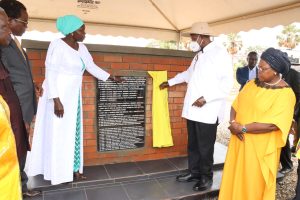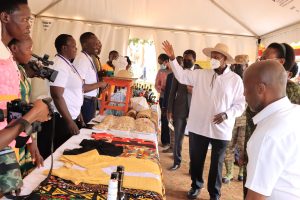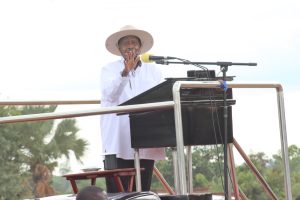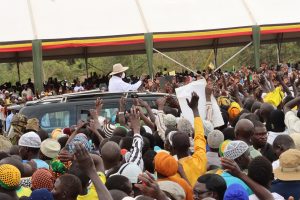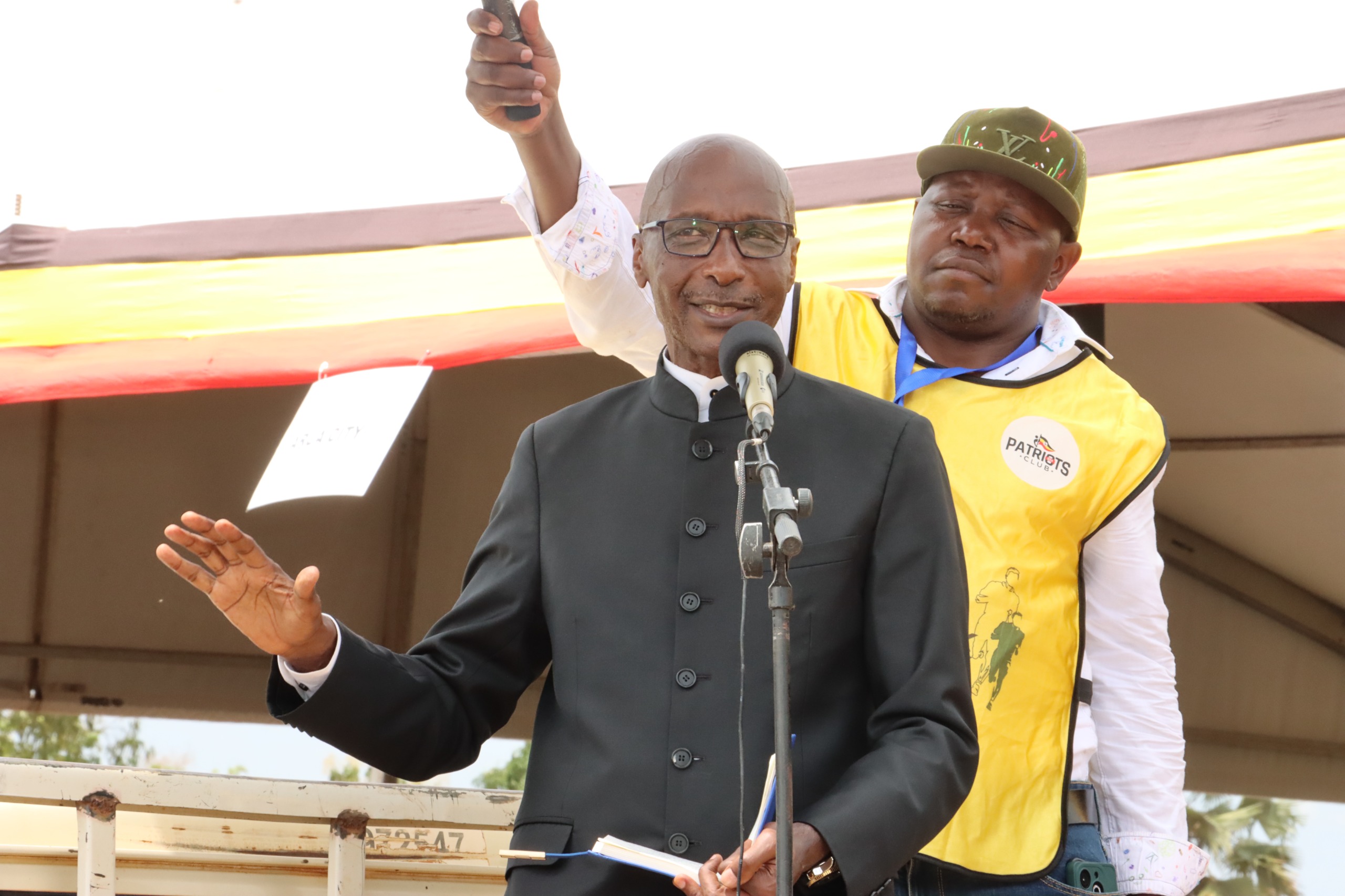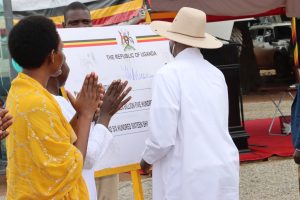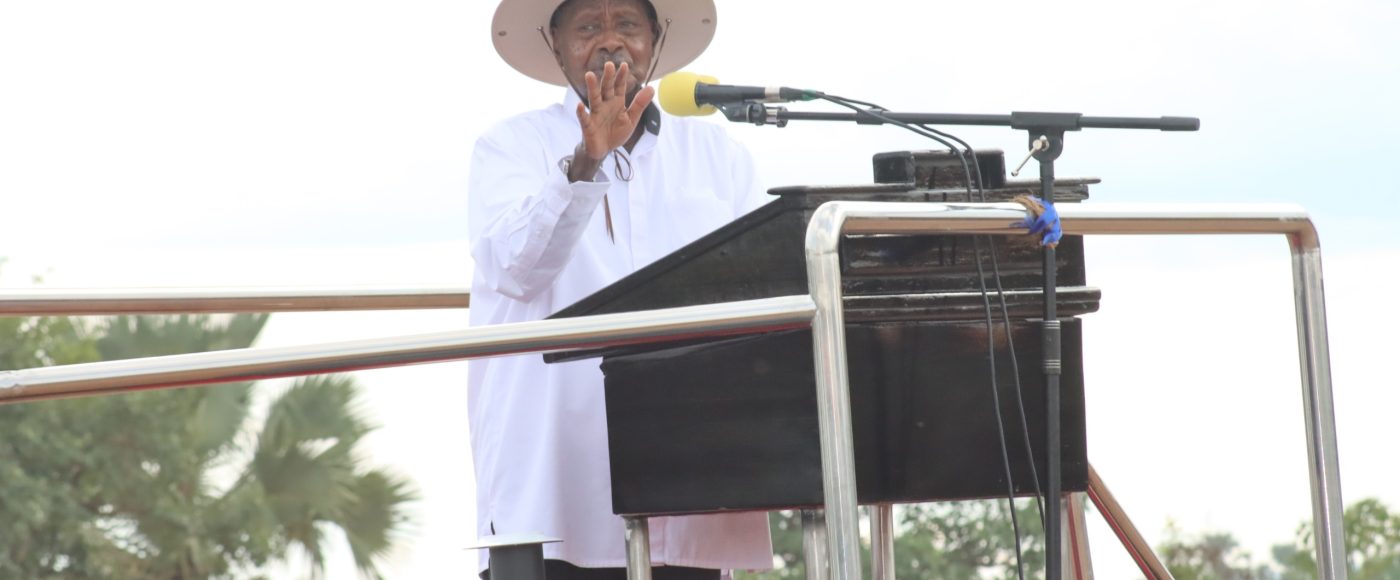
President Museveni Reaffirms NRM’s Steadfast Commitment To Development And Nation-Building
President Yoweri Kaguta Museveni has reiterated the National Resistance Movement (NRM)’s steadfast commitment to supporting what is right and opposing what is wrong, emphasising the importance of unity, structured development, and peacebuilding across Uganda.
The President made these remarks in Yumbe District during the revival of the annual Peace Day Celebrations, themed: “CONSOLIDATING THE PEACE AND SECURITY IN WEST NILE REGION FOR SOCIO-ECONOMIC TRANSFORMATION.”
This occasion marks the peace process between Uganda and the Uganda National Rescue Front II, culminating in the Yumbe Peace Agreement of 24 December 2002, following a ceasefire signed on 15 June 2002.
The landmark accord facilitated the disarmament, demobilisation, and reintegration of UNRF II combatants while prioritising post-conflict recovery and development in the West Nile region, which has since experienced sustained peace and progress.
President Museveni reflected on Uganda’s political journey and the guiding principles that have shaped the NRM’s position over the years. He recalled earlier opposition to Uganda People’s Congress (UPC) policies, particularly its push for federalism, which he described as a complex and unmanageable system.
The President further noted that they did not support Idi Amin’s regime because it lacked a vision for a united Uganda and a federated East Africa. Despite fighting Amin in 1979, President Museveni said they deliberately avoided retaliatory attacks against the people of West Nile, distinguishing them from the leaders responsible for past atrocities. “There was no policy of revenge. We knew the mistakes had been made by a few leaders, not the people. When we entered with Tanzanian forces, we ensured civilians were safe,” the President said, adding that he called on West Nile residents in exile to return home.
The President emphasised the NRM’s commitment to building strong institutions and ensuring equitable recruitment nationwide, stating, “we cannot have a tribal army, police or tribal security service.”
On the issue of development, Museveni acknowledged delays in addressing some concerns faced by former combatants, attributing the delays to resource prioritisation. “You can’t put both legs up at once when walking; you’ll fall. We’re proceeding step by step,” he said, pledging to begin phased compensation for ex-combatants with Ugx 1 billion in the upcoming financial year, which will increase to Ugx 13 billion andPeace Day Celebrations Ugx 12 billion in the subsequent years.
He urged citizens to appreciate that development must be phased, reminding them that “you can’t do everything at once.”
Addressing infrastructure challenges, Museveni acknowledged that roads such as the Nebbi–Arua highway are in poor condition but assured that they are being addressed as part of the ongoing phased development plan.
He paid tribute to Gen (Rtd) Salim Saleh and the late Maj Gen Ali Bamuze for their pivotal role in negotiating efforts that paved the way for cooperation between the two sides.
On national security and peace, the President called for an end to unnecessary conflict, stating, “Fighting should be like surgery, only when necessary. You now elect your leaders. What are you fighting for?”
Regarding the Apaa land conflict, the President called for calm, announcing that a judicial commission of inquiry, chaired by former Chief Justice Bert Katureebe, had been instituted to address the matter.
President Museveni emphasised the importance of consolidating the Parish Development Model (PDM), announcing plans for a separate fund to support communities requiring more substantial capital investments.
The Minister of State for Defence and Veteran Affairs (Veteran Affairs), Hon Huda Abason Oleru commended President Museveni for his vision and commitment, which have guided the country toward lasting peace in the West Nile sub-region.
Reflecting on the region’s turbulent history since the fall of Idi Amin in 1979, the Minister highlighted the government’s ongoing efforts since the early 1990s to engage armed groups in dialogue and resettlement. She noted, “The resettlement strategies have been essential in reintegrating thousands of ex-combatants into society.”
She described the initiative as “one of the final phases in fulfilling government pledges to former fighters,” emphasising that the reintegration packages also serve as a catalyst for economic growth and community development in West Nile.
Representing the Chief of Defence Forces, Gen Muhoozi Kainerugaba, the Commander UPDF Air Force, Lt Gen Charles Okidi, stated that the UPDF recognises the day with great seriousness, acknowledging the vital role played by Generals like Salim Saleh and Kale Kayihura in securing peace through dialogue rather than force.
He recalled that at the height of the Lord’s Resistance Army (LRA) war, Gen Saleh flew from Gulu, camped in Arua, and worked tirelessly with local leaders to bring about reconciliation.
Addressing security concerns, Lt Gen Okidi reassured the congregation that the UPDF remains ready and capable of defending Uganda against any threats from neighbouring borders.
Gen (Rtd) Kale Kayihura recounted the initial stages of the peace process, which began in 1998 when President Museveni authorised Colonel Nassur Izaruku to engage with rebel groups in the region. The insurgents, primarily remnants of former rebel groups, had been causing violence and displacement, particularly along the border areas near Sudan.
Gen Kayihura urged that the story of peace in the West Nile region be documented at the Staff College for study, emphasising it as a powerful example of how the NRA/UPDF ideology of dialogue and reconciliation, combined with a strategic mix of soft and hard power, played a pivotal role in the region’s transformation.
The function was attended by Cabinet Ministers, Members of Parliament, serving and retired Generals and Officers of the UPDF, religious leaders, officials from the Ministry of Defence and Veteran Affairs, and others.

